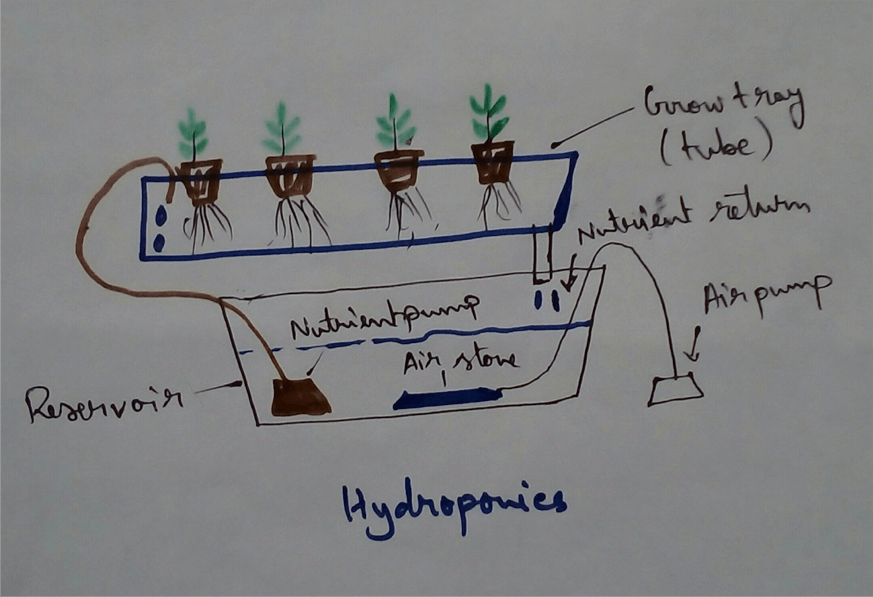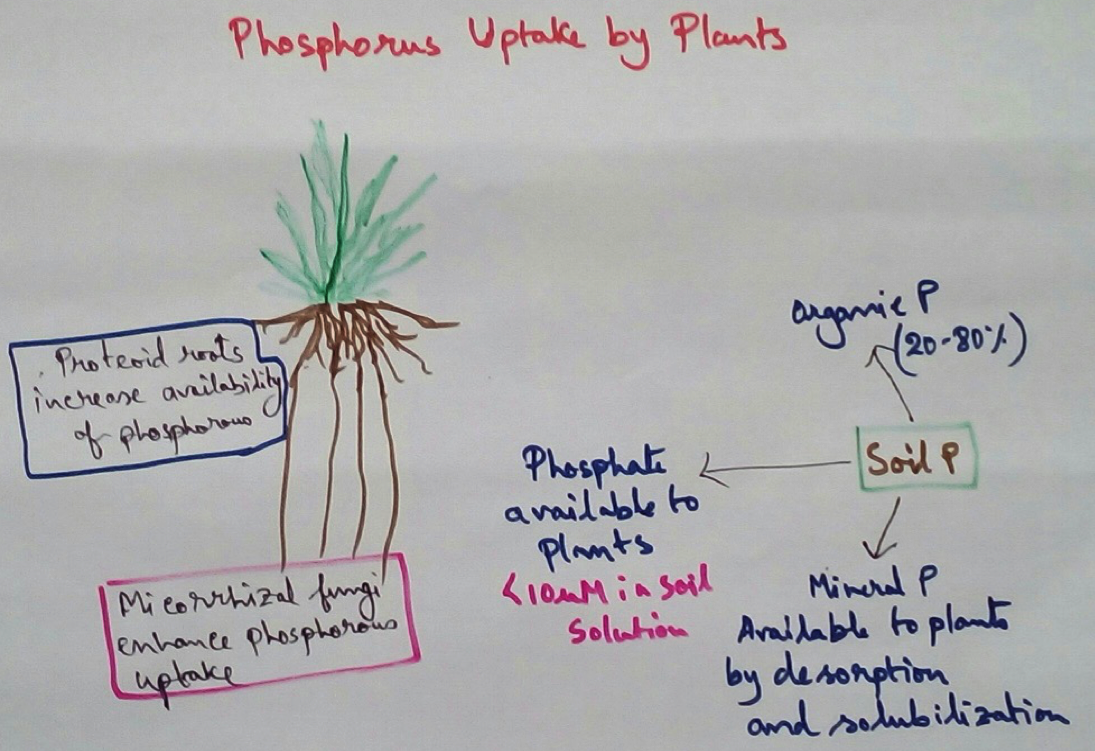Methods to Study the Mineral Requirements of Plants
Mineral Requirements - Elements that require by the plants are called essential minerals.
Functions of Minerals - functions of minerals are-
* Constituent of organic molecules that is carbon hydrogen oxygen nitrogen phosphorus Sulphur Ion magnesium calcium.
* Minerals are also associated with oxidation reduction reactions that occurs by the iron and copper which are having variable valency.
* Minerals are also having catalytic effects as the active components of cofactors of enzyme such as zinc copper potassium sulfide etc.
* Due to presence of mineral Salts and their ions sell SAP exit and osmotic pressure for maintaining turgidity of plants and absorption of water which is called osmotic pressure.
Mineral transport in plants in the upward direction from roots mostly occurs through xylem tissue along with the ascent of sap this thing is confirmed by the experiment called. This thing is confirmed by ringing experiment where involvement and removal of phloem that containing bark,that does not disturb mineral uptake till the roots are active. Another technique is tracer techniques for this experiment was discovered by Stout and Hoagland in 1938. The use of radioactive mineral that shows the mineral passes upwardly exclusively through xylem tissue if the bark is separated from it by a paraffin paper. This export of minerals from leaf occurs through the tissue called fluid as it passes mineral both in upward and downward directions.
Hydroponics and aeroponics are specific type of culture technique where we can observe the nutrient requirements of plant or different experiment on this purpose can be done.
Definition of hydroponics or soilless culture- it is a type of cultivation of plants on nutrient solution that kept in tanks where having when net or other support for plants as solution is aerated changed or replenished and pH correction made from time to time.
Definition of Aeroponics - This is a type of modification of hydroponics culture where roots are not deep in culture solution but are regularly spread with same nutrients and solution.
Culture Experiments
Definition of Culture Experiments - This is a solution having various essential minerals which applied that are required for growth and development of plants on artificial media like solution cultures and culture etc.
Culture Experiment - In culture type of experiments they are in for rearing of plants in culture solution for knowing different factors. These are-
* Essentiality of a mineral.
* Role of essential minerals in growth and development.
* Deficiency symptoms.
Culture Experiments can be of Two Types –
1. Solution Culture - Solution culture for plants grown in jars which having culture solution and
2. Sand Culture - Sand culture for plants grown in pots having sand for encourage and supplied with culture solution.
Culture solution having all the essential minerals which are known as normal solution.
For culture solution only formula was given by Sachs and Knop respectively in 1860 and 1865. They did not noticed the importance of micronutrients where is a Arnon and Hoagland in 1940 give the formula for a nutrient solution which contain all the micronutrients as their major component.
From Methods to Study the Mineral Requirements of Plants to HOME PAGE
Recent Articles
-
What Is Plasma? | Blood Plasma | Proteins | Nutrients | Cholesterol
Nov 07, 25 10:29 AM
Blood is a mobile fluid which is a connective tissue and is derived from the mesoderm like cell any other connective tissue. Colour of blood is reddish and that flows inside the blood vessels by means… -
Disorders of Respiratory System | Tuberculosis | Pleurisy | Emphysema
Oct 28, 25 11:39 PM
Tuberculosis is very common disease and is caused by a type of bacteria called Mycobacterium tuberculosis. This disease causes different trouble in the respiration and infection of several parts of th… -
Regulation of Respiration | Respiratory Centres | Inspiratory Area |
Oct 14, 25 12:13 AM
Respiratory Centre is the area that controls the rate of respiration and it is observed to be located in medulla oblongata and pons. Respiratory Centre has the following will dispersed components like… -
Explain Transport of Gases | External Respiration | Tissue Respiration
Oct 09, 25 11:35 PM
In humans gaseous exchange is completed in the following ways the steps are - External Respiration or Breathing - Breathing in false taking in of Oxygen and giving out of carbon dioxide in the body. M… -
Kind and Number of Teeth | Location of Teeth in Mouth | Care of Teeth
Sep 11, 25 12:52 AM
Kind and Number of Teeth














New! Comments
Have your say about what you just read! Leave me a comment in the box below.